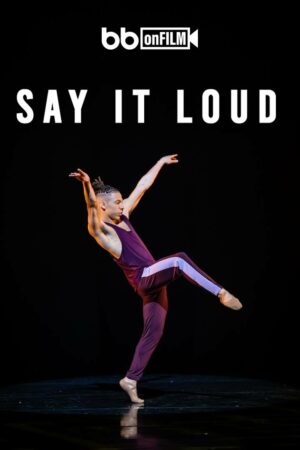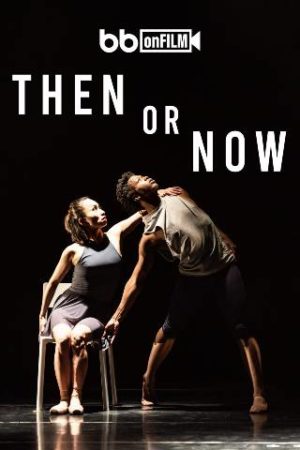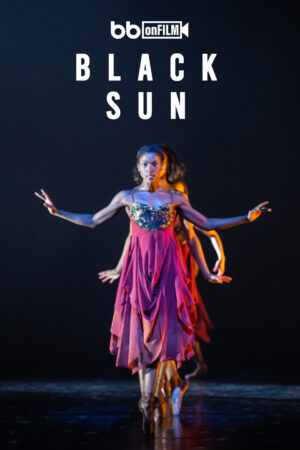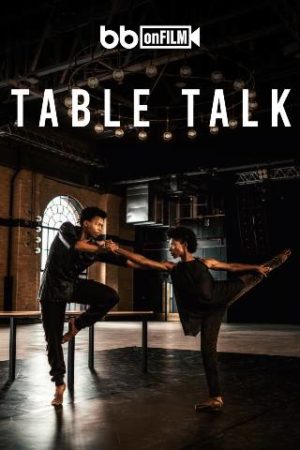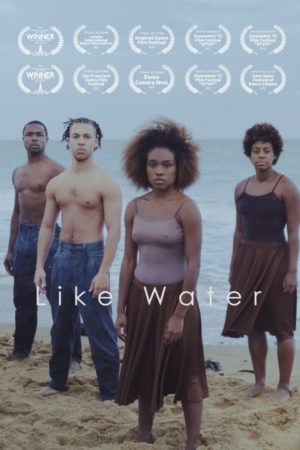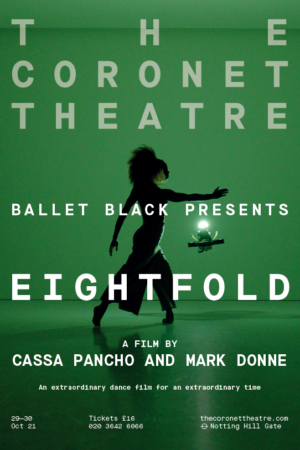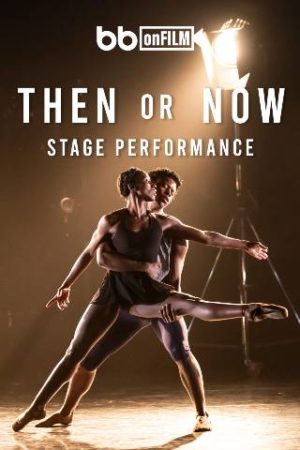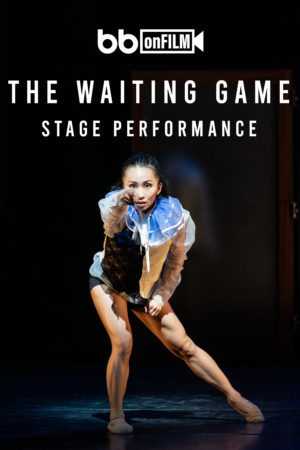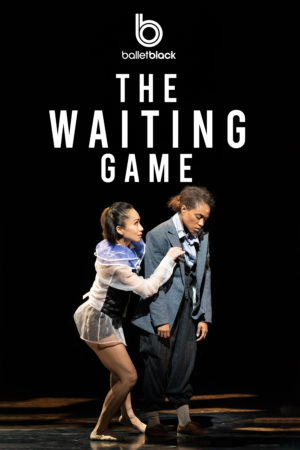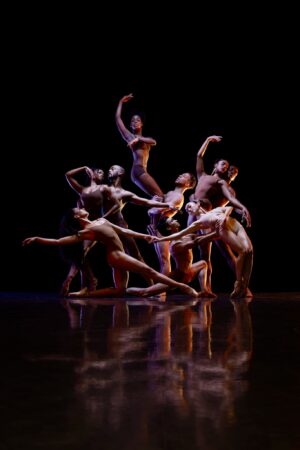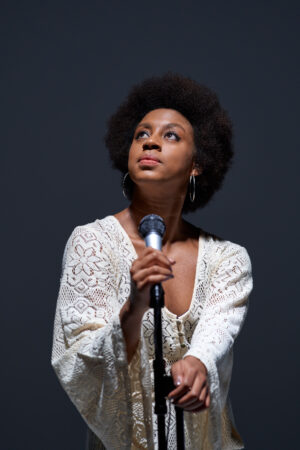Feature Films
Welcome to our feature films section. These films are all pay-per-view and start from as little as £5. When purchasing a ticket have a look to see if a Play List / Multi Film ticket is available. Play List tickets allow you to watch all our pay-per-view films, unlimited times, for one month.
Is it necessary for me to write obliquely about the situation? Is that what you would have me do?
Then Or Now, poetry by Adrienne Rich - Dark Fields of the Republic, Poems: 1991-1995
Then or Now is a powerful classical ballet set against the backdrop of Adrienne Rich’s poetry and accompanied by violin. William Tuckett’s ‘spellbinding’ ★★★★ (The Guardian) choreography explores the joys of submitting to the freedom of guilt through a series of movements.
We are living through times where every action we take - responding to a call to arms, deciding to remain passive - has become a political act. Small or large, personal or public, our actions seem to hold more weight than before. Creating work for Ballet Black in this climate felt very different to previous collaborations; still exciting, but with great responsibility. Whose story should the dancers be telling in a time of such political and social change?
Having worked with poetry as a ‘spoken score’ for a while, I asked Fiona’s help in finding a poet whose work spoke to this narrative conundrum. On reading Adrienne Rich’s Dark Fields of The Republic, I was (and remain), overwhelmed by her ability to call the reader to action; her rejection of apathy, injustice and oppression; her reasoning that love is all – be it romantic, social or political. Specific yet open, Rich provides space for both the reader and the dancer.
In parallel, I had been listening to Daniel’s recording of the Von Biber Passacaglia, and thinking its ‘slippy’ structure, which makes it feel in the moment and improvised, would be wonderful to create to. Daniel later revealed that Biber did indeed intend the player to be actively involved in the piece; to improvise and bring themselves to it as an artist.
Finally, combining the poems, Daniel, and the voices of Natasha, Hafsah and Michael, our sound engineer Ian created a structure and soundtrack, that enabled me to make this piece with Yuki and David.
I remain immensely grateful to this hugely creative, creative team, Ballet Black, and particularly the Adrienne Rich Estate for their wholehearted support of this project.
Will Tuckett
From the Director of Poetry, Fiona L Bennett
We go to poetry because we believe it has something to do with us. We also go to poetry to experience the not me, enter a field of vision we could not otherwise apprehend… Someone writing a poem believes in, depends on, a delicate vibrating range of difference, that an ‘I’ can become a ‘we’ without extinguishing others, that a partly common language exists to which strangers can bring their own heartbeat, memories, images. A language that itself has learned from the heartbeat, memories, images of strangers.
Adrienne Rich, from What is Found There, Notebooks On Poetry And Politics, 1994
Adrienne Rich is one of the greatest modern poets of our time. She was born in Baltimore USA in May 1929 and during her lifetime published over 20 volumes of poetry and 8 books of non-fiction prose. A scholar, activist and a writer whose work established new forms, she received numerous awards, fellowships and prizes including The National Book Award and The Lannan Foundation Lifetime Achievement Award. She was a tireless activist and ambassador for human rights olarly and artistic integrity make her a highly relevant and vital source of inspiration for our time. She died in 2012 and her legacy is a defining force in the ongoing development of poetry.
When Will invited me to suggest poetry for a new piece with Ballet Black to explore ideas of belonging and home we began looking for poems that would serve this theme and that would also offer an exciting balance of sound, image and story through which to create. We considered the works of many poets, past and present, and exchanged poems over a number of weeks. When I sent Will, What Kind of Times Are These? the opening poem from Dark Fields of the Republic, the question in this title and the sequence of poems as a whole, resonated so strongly with us that we knew we had found our source. As Will began work with the dancers and the collaboration between music, poetry and dance began, these astonishing poems, with their unique balance of tender intimacy and epic provocation, guided, challenged and inspired us all.
Dark Fields of the Republic is published by W. W. Norton and is available to purchase at www.wwnorton.co.uk. You can find out more about the life and work of Adrienne Rich through the Adrienne Rich Literary Trust: adriennerich.net
Fiona L Bennett Director of Poetry, Then Or Now.
Notes on Biber's Passacaglia and its accompanying improvisations, Daniel Pioro
Passacaglia for solo violin (1676)
Music originally composed by Heinrich Ignaz Franz von Biber (1644-1704)
Arranged & recorded by Daniel Pioro
Biber’s Passacaglia is one of the first surviving pieces for unaccompanied violin and the final movement of the last of his extraordinary Rosary Sonatas. The piece is built over a constantly repeating bass theme of four descending notes (G F E flat D), whose constant presence seems to symbolise the unending watchfulness of the Guardian Angel. There is a great fragility in this work, moments of sparse textures, moments of glee, intensity, wandering, yet always underpinned by those ever present four notes. This is a piece that, for me, has always called to mind a life cycle. No matter what happens, the tempestuous details, the miserable moments and those of absolute joy too, life just flows on and on. I wanted to record this fragility. With Adrienne Rich's poetry there is no space for perfection, or even of aspiring to it, whatever IT is. But there is room for rawness, honesty, closeness in sound, and I hope that with Ian Dearden's mastery helping me along, we managed to find this. A truth in sound, as there is a truth in Adrienne's words. It is a great sadness to me that I could never work with the dancers of Ballet Black but, as I played this piece, I thought of them. Imagined how they may react to my sound and the flow of this ancient music. Felt their movements, as if they were my own.
I would like to thank Will Tuckett for guiding me into my improvisations, and making me feel like I was surrounded by motion, even when I stood alone in front of a microphone in a tiny studio.
Daniel Pioro
LIKE WATER acknowledges the resilience of our ancestors, passed down from generation to generation. A world unkind to our people, yet somehow we survive. A world that that has conditioned us to not see the beauty of our skin, hair, culture and our people. But like water we flow, like water we change shape. We remain resilient.
the idea… In the wake of the most recent Black Lives Matter movement, I wondered how Ballet Black should react to the apparent shift in global thinking about race, inclusion and equity. My overriding feeling was one of exhaustion; micro aggressions, persecution, death – it seemed never ending. I wanted to see the passionate, joyful aspects of our diverse existence brought to the fore, not just the tragic. Blackness it is not a singular experience: we do not all share the same background, beliefs, trauma or skin colour. I felt compelled to respond by showcasing the multifaceted aspects of joyous human emotion, and also the artistic power of Ballet Black, an organisation that has been championing positive change for Black and Asian dancers for twenty years.
How could we respond safely and creatively in the midst of the coronavirus? I made a wish-list of eight choreographers from around the world and chose a theme for each of them: joy, courage, love, passion, hope, rage, strength and power. I paired each choreographer with the Ballet Black dancer I thought would best respond to the challenge each theme presented. Thanks to the miracle of video conferencing software, we were able to create these ballets via a screen from South Africa, Leeds, New York, Berlin, Paris, Amsterdam, and London. The final challenge was to create a piece of dance art that wasn’t simply dance filmed in the usual theatre set-up. I enlisted the talents of film maker, Mark Donne, to bring these hugely diverse artists and themes together, under his exceptional eye. Mark not only agreed, but gave us the title, Eightfold. I called on our wider BB family and asked the incredible writer, Natasha Gordon (Nine Night) and our Patron Thandiwe Newton, to create short narration to link the films together. Together, we have created an extraordinary piece of art in an extraordinary time - Cassa Pancho
Film Directors Note
Traditionally, ballet has a very limited and fixed relationship with film; invariably being performed and recorded in standard, theatrical formats. The first complete transgression and transcendence of this convention is now marked by, Eightfold.
A collision and in a sense, vivid dialogue between cinema and ballet, this conceptualised suite of work is comprised of eight newly choreographed pieces, each performed within a corresponding atmospheric moment, on a symbolic 24 hour “psychological clock”.
Expansive and radical use of light and film technology – including the most sophisticated cinematic rigs and FPV drones deployed as both camera and light source by Bridgerton Director of Photography, Mark Nutkins – render an unprecedented dance experience, where each dancer is introduced by a symbol or glyph, allowing the unadulterated transmission of absolute performance, state, emotion, and deep fusion with the medium of film.
This project is unprecedented in its approach and dimensions, and will, in all probability, radicalise and inspire the relationship between ballet and film forever. - Mark Donne, Film Director
Choreography: William Tuckett
Lighting Design: David Plater
Costume Design: Yukiko Tsukamoto
Poetry: Adrienne Rich (1929-2012)
Director of Poetry: Fiona L Bennett
Poetry recordings: Hafsah Bashir, Natasha Gordon & Michael Shaeffer
Is it necessary for me to write obliquely about the situation? Is that what you would have me do?
Then Or Now, poetry by Adrienne Rich
Dark Fields of the Republic, Poems: 1991-1995
We are living through times where every action we take - responding to a call to arms, deciding to remain passive - has become a political act. Small or large, personal or public, our actions seem to hold more weight than before. Creating work for Ballet Black in this climate felt very different to previous collaborations; still exciting, but with great responsibility. Whose story should the dancers be telling in a time of such political and social change?
Having worked with poetry as a ‘spoken score’ for a while, I asked Fiona’s help in finding a poet whose work spoke to this narrative conundrum. On reading Adrienne Rich’s Dark Fields of The Republic, I was (and remain), overwhelmed by her ability to call the reader to action; her rejection of apathy, injustice and oppression; her reasoning that love is all – be it romantic, social or political. Specific yet open, Rich provides space for both the reader and the dancer.
In parallel, I had been listening to Daniel’s recording of the Von Biber Passacaglia, and thinking its ‘slippy’ structure, which makes it feel in the moment and improvised, would be wonderful to create to. Daniel later revealed that Biber did indeed intend the player to be actively involved in the piece; to improvise and bring themselves to it as an artist.
Finally, combining the poems, Daniel, and the voices of Natasha, Hafsah and Michael, our sound engineer Ian created a structure and soundtrack, that enabled me to make this piece with Yuki and David.
I remain immensely grateful to this hugely creative, creative team, Ballet Black, and particularly the Adrienne Rich Estate for their wholehearted support of this project.
Will Tuckett
From the Director of Poetry
We go to poetry because we believe it has something to do with us. We also go to poetry to experience the not me, enter a field of vision we could not otherwise apprehend… Someone writing a poem believes in, depends on, a delicate vibrating range of difference, that an ‘I’ can become a ‘we’ without extinguishing others, that a partly common language exists to which strangers can bring their own heartbeat, memories, images. A language that itself has learned from the heartbeat, memories, images of strangers.
Adrienne Rich, from What is Found There, Notebooks On Poetry And Politics, 1994
Adrienne Rich is one of the greatest modern poets of our time. She was born in Baltimore USA in May 1929 and during her lifetime published over 20 volumes of poetry and 8 books of non-fiction prose. A scholar, activist and a writer whose work established new forms, she received numerous awards, fellowships and prizes including The National Book Award and The Lannan Foundation Lifetime Achievement Award. She was a tireless activist and ambassador for human rights olarly and artistic integrity make her a highly relevant and vital source of inspiration for our time. She died in 2012 and her legacy is a defining force in the ongoing development of poetry.
When Will invited me to suggest poetry for a new piece with Ballet Black to explore ideas of belonging and home we began looking for poems that would serve this theme and that would also offer an exciting balance of sound, image and story through which to create. We considered the works of many poets, past and present, and exchanged poems over a number of weeks. When I sent Will, What Kind of Times Are These? the opening poem from Dark Fields of the Republic, the question in this title and the sequence of poems as a whole, resonated so strongly with us that we knew we had found our source. As Will began work with the dancers and the collaboration between music, poetry and dance began, these astonishing poems, with their unique balance of tender intimacy and epic provocation, guided, challenged and inspired us all.
Dark Fields of the Republic is published by W. W. Norton and is available to purchase at www.wwnorton.co.uk. You can find out more about the life and work of Adrienne Rich through the Adrienne Rich Literary Trust: adriennerich.net
Fiona L Bennett Director of Poetry, Then Or Now.
It is so incredible to have this opportunity to make my second touring work for Ballet Black. This year’s piece took a couple of different turns to get to where it is today, as the subject got quite complicated and created many challenges. Which was, for me, very exciting. The Waiting Game is inspired by one of the key figures of Theatre of the Absurd, Samuel Beckett. It explores the Absurdism of existence and the passing of the time through movement. The uncertainty of what tomorrow will bring; how thoughts can change rapidly, confusing us. Is life just a big simulation? A game? Do we know the rules, or are we all searching for purpose? If life is a game, are we players or spectators? Is time just a constant reminder that there will be a tomorrow?
This concept is fascinating to me as an artist, and I really wanted to find a way to bring this idea to life. I decided to take on the challenge of creating an original score for the first movement of the piece. The process of creating this element of the ballet really helped me to understand what I was trying to achieve choreographically. I am by no means a composer or a musician, but I loved the idea of what this additional layer could bring to the way I work. Music is such a strong driving force in dance, and I have enjoyed knowing that I had room to play around with the sound. Using the dancers’ voices as part of the music is always my favourite thing, and I really wanted to expand on that idea. This year I collaborated with Nathalie Vijver, who was my drama teacher when I attended the Cape Town Academy of Performing Arts. Working with Nathalie gave me so much clarity on the themes of Absurdism, drama, writing and staging a theatrical work like The Waiting Game. The title of the piece on its own is quite interesting to me, in the sense that a person can find themselves in a situation where everything is presented to them, but they can choose to make their move at a later stage. This title led us to write a piece that is both complex yet simple, deep, confusing and fun. It’s about the exploration of the scrambling of thoughts that sometimes don’t lead us anywhere, when all the while, time continues to pass us by.
The Ballet Black team and I spent a lot of time trying to figure out how this would be best communicated through movement and dance. The most amazing thing about being both a dancer and choreographer in the Company is the constant communication we are able to have, and the idea of building something much greater than ourselves. Thank you to Cassa and the dancers for creating this work with me. I am very happy to share it with you.
Mthuthuzeli November
This concept is fascinating to me as an artist, and I really wanted to find a way to bring this idea to life. I decided to take on the challenge of creating an original score for the first movement of the piece. The process of creating this element of the ballet really helped me to understand what I was trying to achieve choreographically. I am by no means a composer or a musician, but I loved the idea of what this additional layer could bring to the way I work. Music is such a strong driving force in dance, and I have enjoyed knowing that I had room to play around with the sound. Using the dancers’ voices as part of the music is always my favourite thing, and I really wanted to expand on that idea. This year I collaborated with Nathalie Vijver, who was my drama teacher when I attended the Cape Town Academy of Performing Arts. Working with Nathalie gave me so much clarity on the themes of Absurdism, drama, writing and staging a theatrical work like The Waiting Game. The title of the piece on its own is quite interesting to me, in the sense that a person can find themselves in a situation where everything is presented to them, but they can choose to make their move at a later stage. This title led us to write a piece that is both complex yet simple, deep, confusing and fun. It’s about the exploration of the scrambling of thoughts that sometimes don’t lead us anywhere, when all the while, time continues to pass us by.
The Ballet Black team and I spent a lot of time trying to figure out how this would be best communicated through movement and dance. The most amazing thing about being both a dancer and choreographer in the Company is the constant communication we are able to have, and the idea of building something much greater than ourselves. Thank you to Cassa and the dancers for creating this work with me. I am very happy to share it with you.
Mthuthuzeli November

